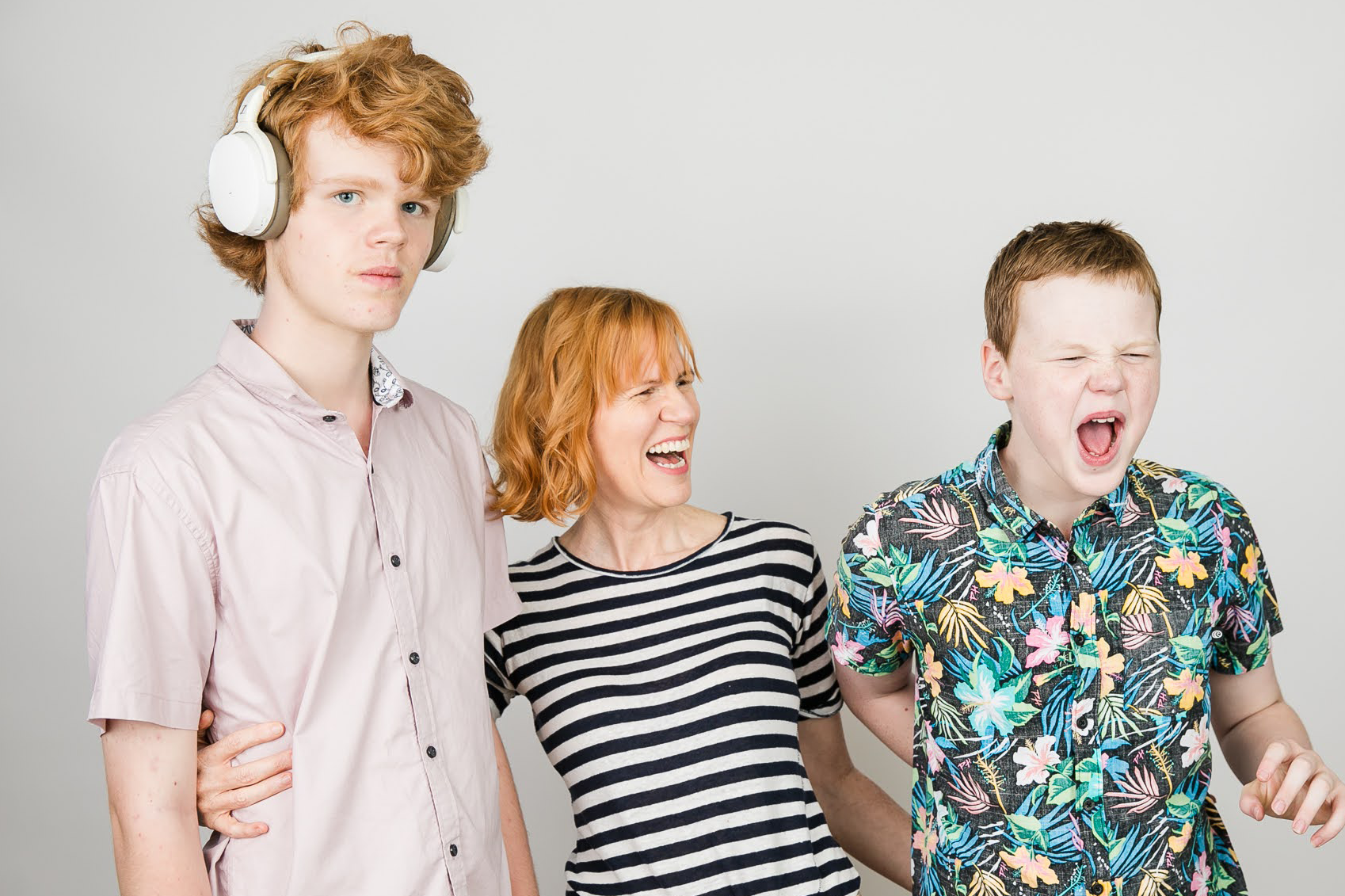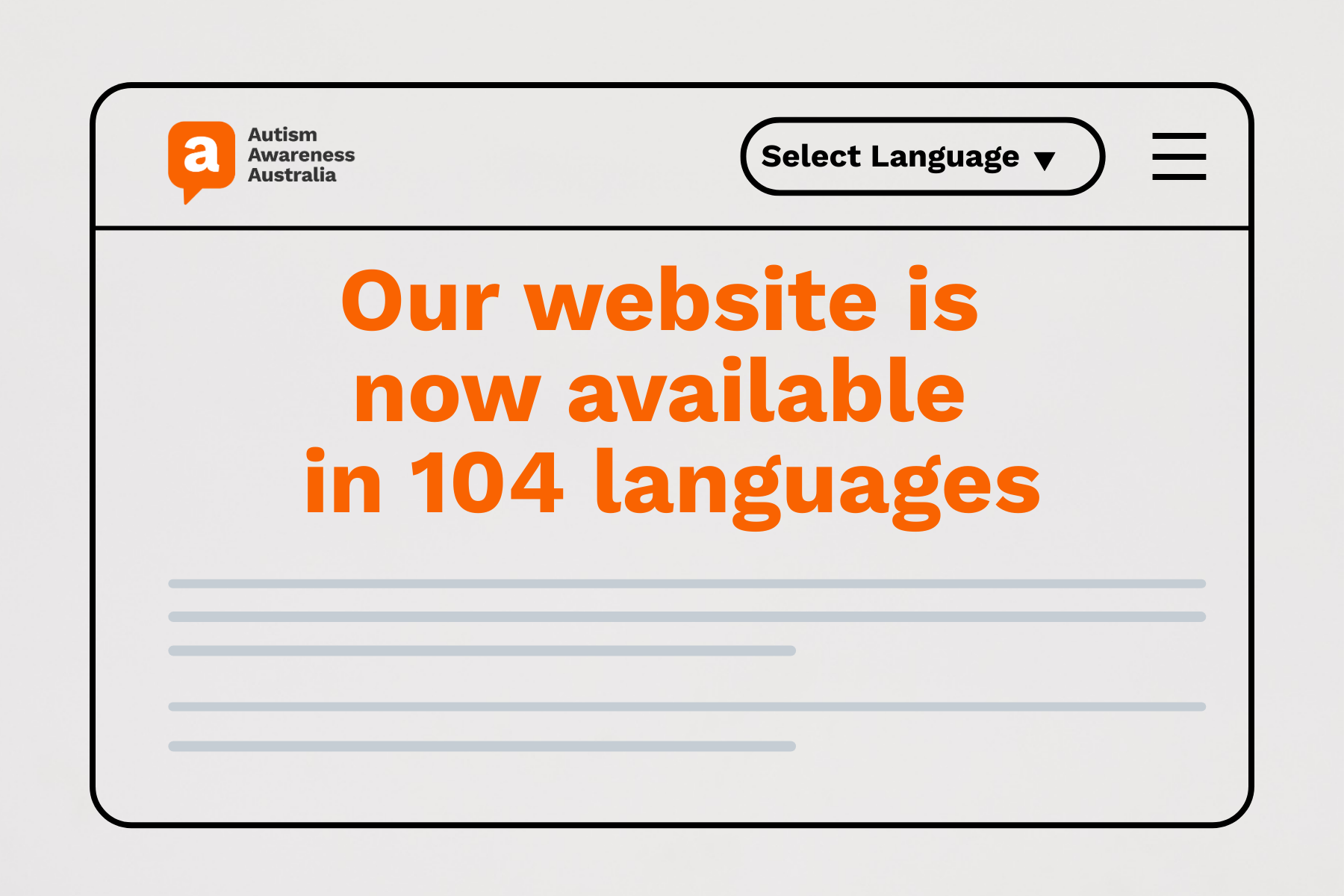Little Dreamers and Young Carers: Heidi's story

There are many stereotypes that surround the role of a carer, which can exacerbate the challenges they experience and lead to social isolation and a lack of support.
One of these stereotypes is that people on the autism spectrum can't be carers for other people, particularly if they're a child, teenager or young adult. Heidi Farley, a young autistic carer for both of her parents, spoke to us this National Carers Week about autism, young carers and the support and opportunities she's had with Little Dreamers Australia.
Can you tell us a little bit about yourself and how you became a young carer?
I’m Heidi, and I’m a 19-year-old Indigenous young carer from a small town in regional NSW. I’ve been in some form of a caring role for both of my parents for my entire life, so my experience of childhood has been far from the norm! My dad was born with a genetic bleeding disorder and my mum had a workplace injury before I was born that left her with permanent nerve damage and unable to work again.
This required me to take on a caring role for them in many different forms throughout my childhood, but it was not until 2021 at age 17 that I identified as a young carer, when my family found an advertisement about Little Dreamers. Alongside my caring role, I was diagnosed with Autism and ADHD at age 17 after struggling for many years with my mental health.
I have a passion for dance and have been doing it for 17 years this year - it’s how I process my emotions and trauma. Dance has always been the one thing in my life that is completely mine, no matter how sick my parents have been, or even if they were in hospital, I have always made it to my dance classes. Dance has become such an important part of my life, and it will always be a part of my life as it’s my biggest escape.
We know that being a carer can be challenging at times. What are some of the difficult aspects about being a young carer that people might not realise or talk about?
Throughout my life, I have experienced so many challenges as a young carer that people don’t consider or talk about. I think one of the biggest challenges all young carers face is not being recognised, as most people don’t even know young carers exist, or assume that children and young people can’t/don’t have to take care of their parents, siblings, or family members.
There are far too many young carers who, like me, don’t know and may never know that they are a young carer. Had somebody identified that I was a carer at a younger age, I may have been able to seek support that would have completely changed my life, rather than being told by my teachers, doctors, psychologists, family and friends to ‘just stop worrying about your parents’ or ‘that’s an adult problem that you don’t need to worry about’. What most people don’t realise is how heartbreaking it is when you have seen somebody you love deeply so sick, that they are about to pass out from immense pain, and this is something I saw daily as a child.
One of the other biggest challenges I face as young carer and as an autistic person is living in a small and rural town, as there are many support options we can’t access. To access support services, my family must travel over an hour to Newcastle, where there are still very few options available.
As a young carer, I faced many challenges during high school and sadly I was unable to complete year 12 due to the high demands of studying during COVID-19, alongside a lack of support and understanding from my school in regards to my caring. I am just one of the 96% of primary young carers in Australia who don’t finish high school, but had my teachers been educated to understand and identify young carers, I could have received support which may have allowed me to complete my HSC.
Finally, one of the other challenges I have faced being a young carer is isolation. Growing up, I understood I was different to the other kids, but I could never understand why I struggled to make and keep friends. Until I connected with Little Dreamers, I felt completely isolated and as though no other person could understand what I was experiencing. After connecting with them, I met a group of young carers that, like me, had faced adversity throughout their life and for the first time ever, I felt understood.
Although being a carer can be difficult, there are also rewarding moments, too. Can you share some positive experiences you’ve had as a young carer?
Although being a young carer has had such an impact on my life, it’s also shaped me to be the person I am today, and I would 100% not be Heidi without the experiences.
Being a young carer has shown me the type of person I am and has helped me to decide what to do with my life. It has helped me develop my love for helping people and teaching – recently, I have started teaching dance classes at my studio and it’s something I love, as it combines my love of helping people with also teaching.
I’ve had many amazing opportunities with Little Dreamers since I first connected with them in 2021, and advocating for young carers has allowed me to process my trauma and helped me to accept myself. In 2021, I participated in Little Dreamers’ Young Carer Advocacy Project, where I worked with other young carers and the Little Dreamers team to create a report outlining the challenges that young carers face. For me, this was the first time that I realised I wasn’t alone and that there were other people who had similar experiences to me. It was the first time that I had talked about many of the things I had experienced as a young carer throughout my childhood. That year, I also had the opportunity to work with The Body Shop as an ambassador for Little Dreamers and tell my story and further advocate for young carers. This year, I have also had the opportunity to work with Little Dreamers on their ‘I Care. Do You?’ campaign, where I had the opportunity to tell my story, which was filmed and is being used to bring awareness to young carers.
Possibly the most rewarding experience I have ever had from being a young carer is when a friend from high school reached out to tell me that because I told my story, they were now seeking support as a young carer.
How does being autistic/a person with autism influence your experience as a young carer?
Being autistic has had a huge impact on my experiences as a young carer. I actually attribute one of the reasons for getting my autism diagnosis later in my life to being a young carer, as prior to my diagnosis I used to keep my problems to myself to avoid putting extra stress on my parents.
The huge problem I face being a young carer with autism is seeking help and support. Throughout my life, I have found that many organisations, especially government ones, try and fit people into nice little boxes when seeking support. Unfortunately, I’ve never fit inside these boxes and found it very hard, as many organisations do not understand or believe that a person with a disability could also be a carer. Sadly, my mum would be more likely to receive support from the government for caring for me an autistic person.
What message would you like to send to people who want to support the young carers they know but might not know where to start?
There are so many things that I wish people could understand about young carers, but I personally think the biggest one is just that we exist and that a lot of us are struggling and probably in need of some support. The support that every young carer may need is different, but talk to us and ask how you can help us as an individual.
For me, I often felt like I carried the weight of the world on my shoulders and some days I still do, but all I needed a lot of the time was somebody to just listen to my concerns, give me a hug and be there for me.
And finally, what advice would you give to other young carers when it comes to prioritising and advocating for your needs?
The advice I would give to other young carers is that it’s so important to have something that is just for you. For me, that’s dancing and reading, as they remind me that I am a person outside of my caring role.
We are not our caring roles - it’s so important we remember this as young carers. When I’m caring for my parents, they become the most important people and I put my own needs and emotions aside to do whatever I can to support them.
I also think it’s important that young carers have a group of people that they know will support them. For me, I have two teachers from high school who have supported me on so many occasions and without them, I would not have even made it to year 11. I also know that my entire dance family is there to support me alongside my family and this is so important.
Finally, advocating for your needs can be hard but it’s so important to reach out to organisations that are designed to support young carers. This can really help as it allows you to connect with other people who have been through similar experiences to you and who may be able to offer advice. You can never have enough people in your circle of support.
For more information and support for the autism community:
- A guide to self-care for caregivers
- Looking after yourself (autistic adults)
- Looking after yourself (parents/carers of autistic people)
Written by Heidi Farley.
To learn more about Little Dreamers Australia and their important work, you can visit their website.






